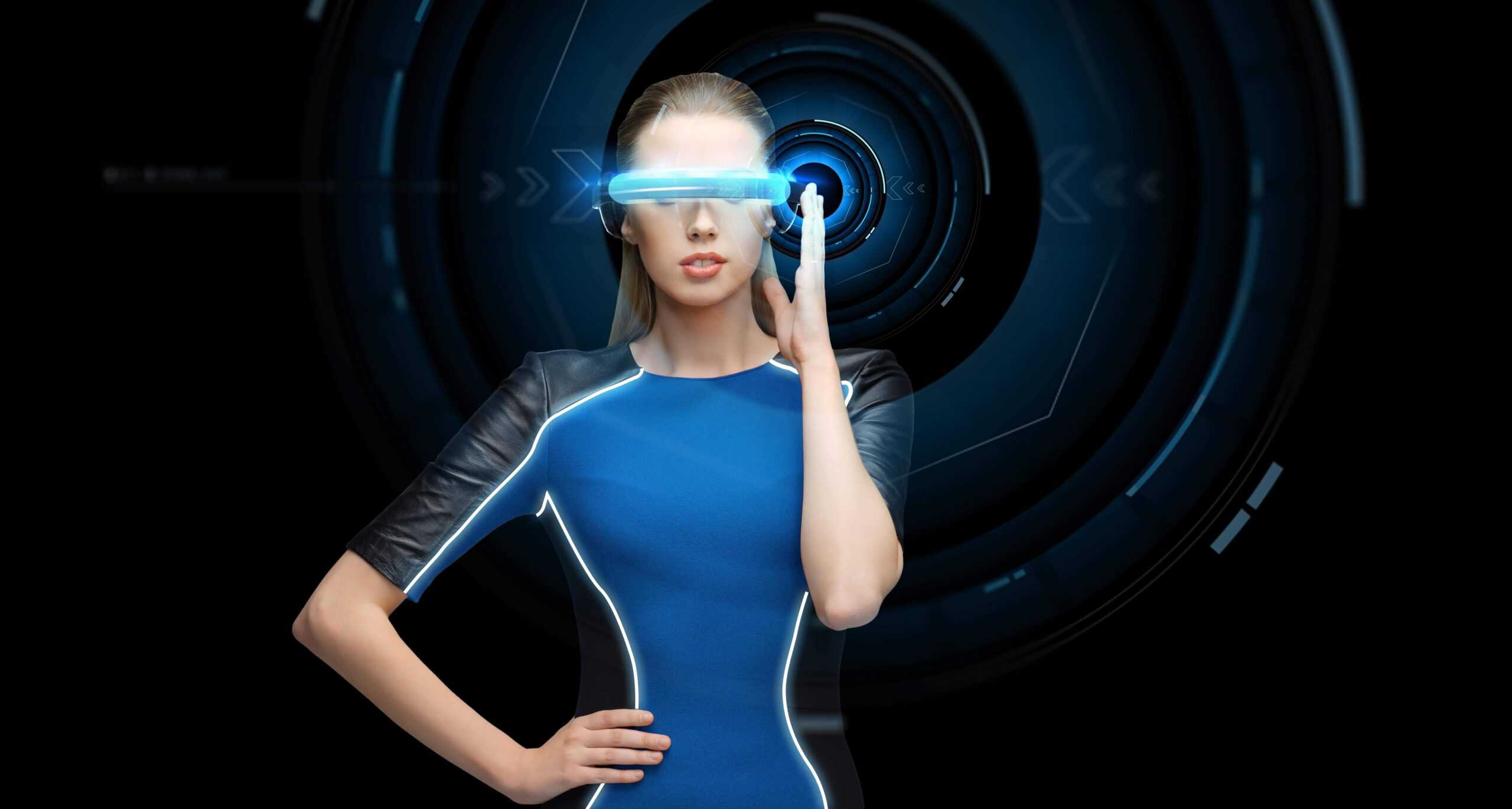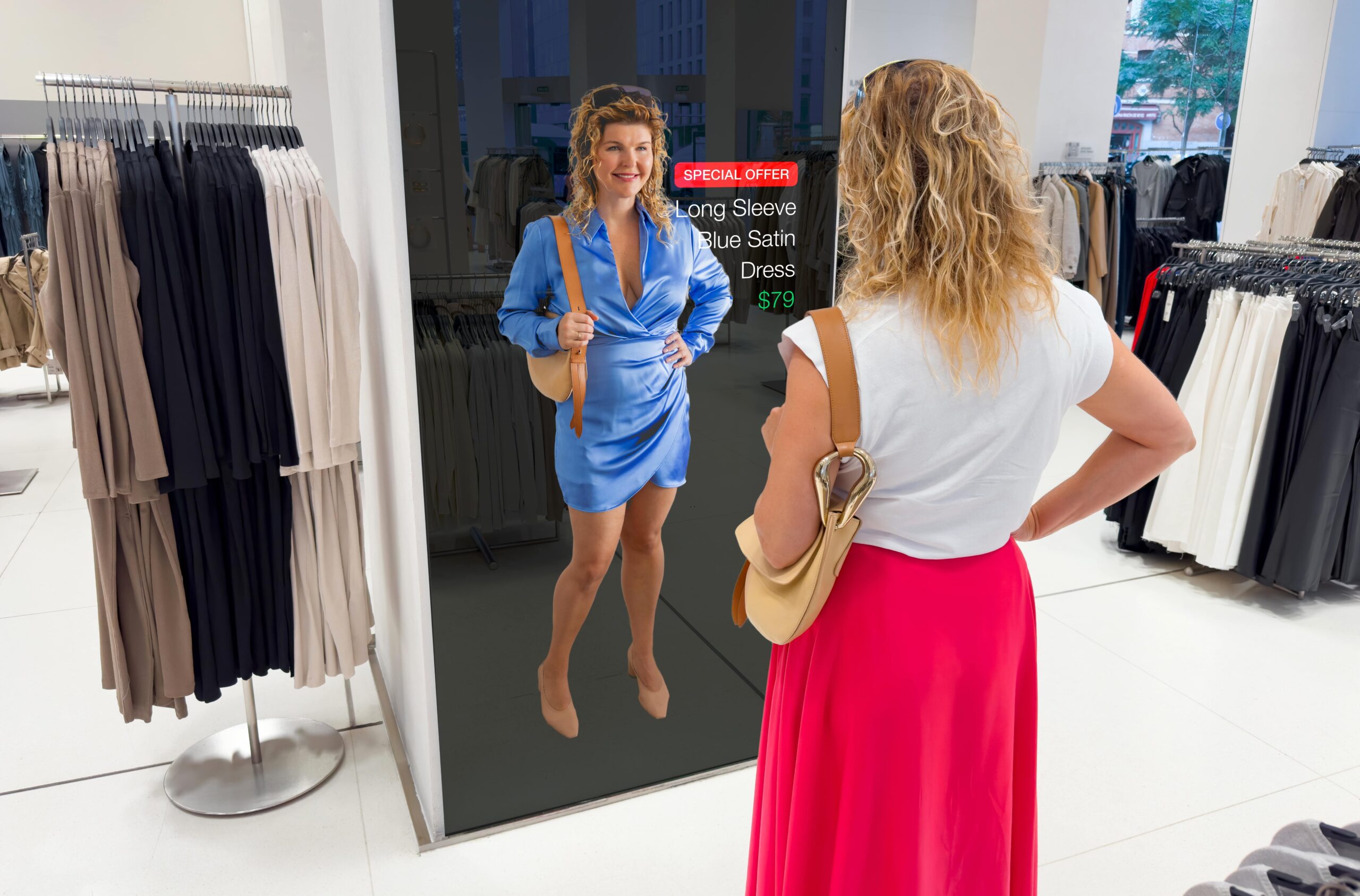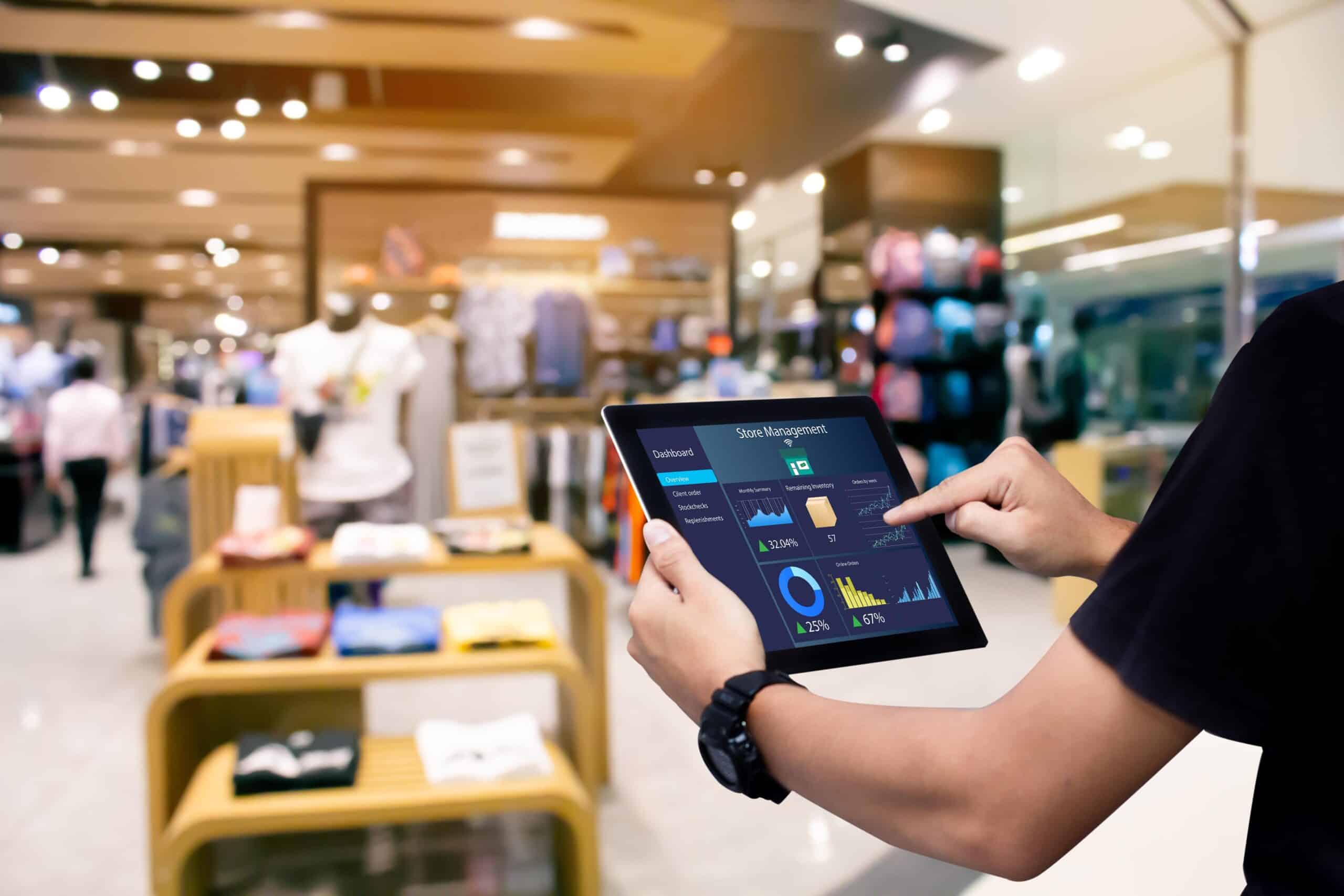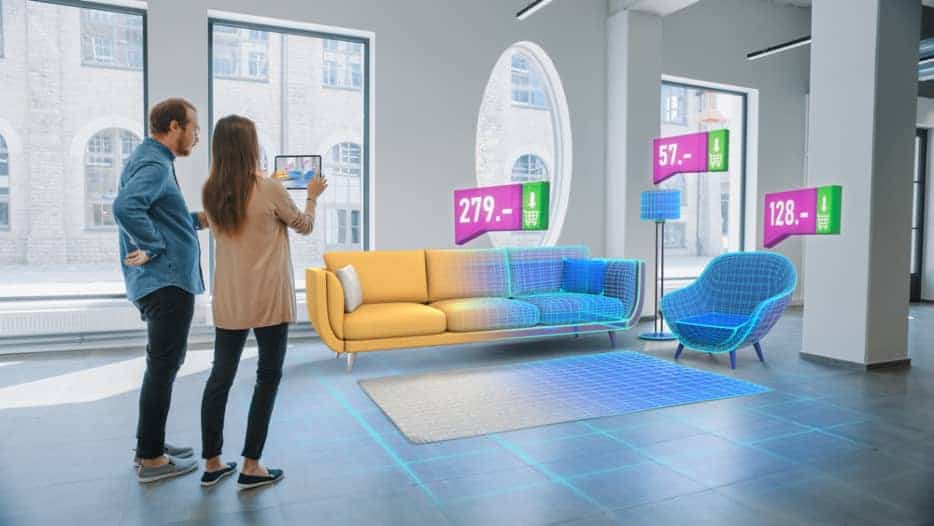- The pandemic’s impact on retail
- Remarkable innovations in challenging times
- Visions and predictions for the retail sector
- Closing thoughts
Even through the adversity of the pandemic, the retail sector remains remarkably resilient. And with many countries across the globe entering what looks like the start of a post-pandemic phase, retail has started reopening, focusing on recovery and a return to normal operations. Businesses in this sector have displayed the determination and ingenuity to adapt and overcome, and are expected to emerge reinvented, with their wheels of innovation turning at full speed.
The pandemic’s impact on retail
A recent report published by Quantum Metric reveals that e-commerce average revenue weekly growth rates grew by more than 50 per cent in 2020, while conversion rates increased by nearly 10 per cent. Furthermore, online sales are expected to account for more than a quarter of all retail sales over the next five years, according to Moody’s analysts.
The need to keep physical contact with others to a minimum has also resulted in a major growth of buy online, pick up in-store (BOPIS), click-and-collect methods, and curbside pickup services, as well as increased demand for contactless payment methods and cashierless stores. Technologies like augmented reality, virtual reality, and robots have likewise experienced wider acceptance among retailers in the past year. Furthermore, with consumers now paying more attention to their impact on the environment, ethical and sustainable retailing have also come to prominence. While these changes have been largely necessitated by the pandemic, some of them are likely to remain a permanent fixture of the retail landscape going forward, significantly accelerating the digital transformation of the sector.
Remarkable innovations in challenging times
It’s often said that difficult times bring out the best in people and this old saying has been proven true once again. Presented with a wide variety of new challenges, some of which threatened their very existence, retailers had to exercise their creative muscles and come up with effective solutions on very short notice.
Trying on products in VR or AR
The British online retailer Asos joined forces with the Israel-based startup Zeekit to launch a new solution that allows customers to try on clothes in a virtual environment and see what they would look like on their body before they commit to a purchase. Similarly, the Chinese tech company Meitu launched the AR-powered Cosmetic Promotion Assistant to enable their customers to virtually try on lipstick, mascara, and other beauty products. The Barcelona-based bridal company Pronovias Group went one step further and created an entire digital bridal wear showroom, where customers can explore the latest collections from some of the world’s most notable brands and even set up virtual appointments.
Video shopping
Video shopping is also likely to take on a more prominent role in retail in the future. UK’s leading perfume retailer The Perfume Shop recently implemented Go Instore’s video solution that allows customers to interact with store assistants over video. “By adding face-to-face, real-time expert help to online shopping, retailers empower customers within their purchasing journeys, ease their minds and instil confidence on big purchasing decisions, while adhering to government guidelines and keeping consumers safe and comfortable,” explains Zeeshan Ghalib, chief technology officer at Go Instore.
Contactless smartphone payments
Many retailers have also implemented contactless payment solutions. The sporting goods retailer Decathlon, for instance, rolled out the MishiPay app in all of its German stores, allowing customers to pay for their purchases using their smartphones and walk out the store without having to touch any surface within. As consumers get used to increased convenience this technology provides, its adoption in retail is likely to widen even further in the future, potentially even becoming the primary method of payment.
Visions and predictions for the retail sector
The retail environment of the future will be very different from what we have grown accustomed to. As traditional retail models lose their appeal among consumers, there will be an influx of new business models that take advantage of recent changes in consumer behaviour, including growing preference for online shopping. “Those who can innovate and put together the best alternatives to business as usual will be in the strongest position to capitalise on consumer demand moving forward,” explains Eric Spangenberg, professor at UCI’s Paul Merage School of Business.
Richard Lim, chief executive of Retail Economics, believes that the pandemic could lead to reduced materialism by forcing consumers to reassess their priorities. This sentiment is echoed by Chris Wilkinson, managing director at First Retail Group, who expects that the growing concern about our environmental impact will likely result in a decline in mass consumerism. Similarly, retail futurist Howard Saunders believes that “brand values will shift away from self-indulgence, luxury, celebrity and narcissism towards more fundamentals such as family, home, friends and wellbeing.” That doesn’t mean that people will stop shopping altogether, though. Instead, according to futurist Richard van Hooijdonk, shopping will become increasingly personalised, aided by innovative technologies like artificial intelligence, augmented and virtual reality, and data analytics.
“Customer service, staff expertise, and customer experience are all vital now,” adds Doug Mutter, director at online retailer VPZ. “People [who shop online] have been used to buying without interactions, so we need a stronger focus on making the customer welcome and providing the best products or services you can.” Likewise, Riyadh Bhyat, head of Quantium in Europe, Middle East, and Africa, predicts that hyper-personalised product recommendations will become a key feature of retail in the upcoming period. “2021 will point to the future when retailers will do your shopping for you,” says Bhyat. “When you opt in as a customer, they’ll predict your needs and deliver them, thereby minimising search time. In fashion, this will extend to selecting items that perfectly fit you, based on the body scans you’ve shared.” Mike Clem, chief digital officer and senior VP of the successful independent online music retailer Sweetwater Sound, further predicts that “we can also anticipate a rise in personal shoppers, who can offer advice and trust in the absence of physical stores, as well as confidence to high end purchases or high consideration items.”
Closing thoughts
The pandemic has significantly accelerated the digital transformation of the retail sector. To adapt to the new normal and meet evolving consumer needs, retailers are increasingly turning to innovative technologies like artificial intelligence, machine learning, AR/VR, and robotics. Many of the changes brought about by the pandemic are likely to remain a permanent feature of the retail landscape moving forward, changing the way we shop and providing a safer, more convenient, and more personalised customer experience.




